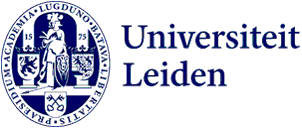
4 KIEM grants for Humanities
Four projects led by the Faculty of Humanities have been awarded KIEM grants. The researchers will receive €10,000 to carry out their plans.
The multiple voices of Leiden: Multilingualism and linguistic diversity in the city
This project aims to collect filmed linguistic testimonies of Leiden residents with a migration background. These testimonies will focus on how these people experience the extent to which their language and cultural background are welcomed in Dutch society and how this affects their identity, sense of belonging, and general wellbeing. These testimonies will be shown in a mini-exhibition, where they will be embedded in a context of information about Leiden as a multilingual city. The scientific goal of the project is to acquire more insight into the processes that affect language vitality and links between language, identity, and wellbeing. The societal goal is to promote greater tolerance of the situation and struggles of migrants, and more appreciation for the intrinsic value of cultural and linguistic diversity.
Rik van Gijn, Mariana Françozo, Gijsbert Rutten, Janet Connor, Hannah de Mulder
Market power in the 21th century
In March 2025, Elon Musk threatened to turn off Ukraine’s access to Starlink – a satellite communication system operated by his company Space X – which keeps the country’s hospitals, military operations, and power plants online amidst the war with Russia. The event illustrated the extraordinary degree of power wielded by individual corporations in our economy, and the fact that they can use this power to influence not only economic outcomes, but also politics and democracy and even life and death. This is not the first time in history that democratic societies have had to contend with the concentration of economic power, and over the course of the 20th century various instruments have been put in place to regulate competition. Despite a well-established body of competition law, however, concentrations of market power have increased rapidly in the past 30 years, partly as a result of changes in technologies and data-driven business models. This project combines legal, political science, and historical approaches to explore the limits of existing competition policy tools and what political intervention can do to limit the negative impact of corporate concentration on society. Through a series of workshops facilitating encounters between Leiden University academics and regulators, civil society and trade union representatives and politicians, we plan to map out different ideas for countering extreme market power.
Vera Scepanovic
Medical interactions: interdisciplinarity of Health Humanities
Although the study of (medical) care in the social, (inter)cultural and communicative context has a place within various faculties and institutes, a common basis is still lacking. In this project, we will develop an interdisciplinary platform: Medical Encounters. By inviting researchers from the health sciences, social sciences and humanities to join the Medical Encounters platform, this project aims to facilitate the exchange of expertise, insights, methods and approaches that will give Health Humanities in Leiden its own interfaculty and interdisciplinary profile. The central focus will be on interactions in a medical context, and the aim is to set up interdisciplinary research projects (such as grant applications or pilot projects) and educational projects (such as an honours course and possibly a minor) on this topic. A university website with infrastructure for communication, blog posts, announcements and exchange will be set up to realise the intended Medical Encounters platform. In 2025-2026, monthly meetings will be organised to shape the research and educational collaboration, and in May 2026, a two-day interdisciplinary workshop on Medical Encounters will be organised with Leiden researchers and several invited speakers.
Roosmaryn Pilgram, Nienke Slagboom, Annemarie Samuels en Geert Warnar.
Ancient Religions and the Materiality of Danger
Leiden University is home to many specialists in the study of ancient religions. Up to now, our disciplinary boundaries have kept us from fully developing cooperation across Faculties – especially those of Humanities and Archaeology and their associated Institutes. Our aim is to bridge those divisions and allow the experts to fruitfully pool their resources. The KIEM 2025 grant will enable us to organise a conference on ‘Ancient Religions and the Materiality of Danger’ with intellectual, educational, as well as networking purposes. We have chosen to focus on the materiality of danger as materiality combines the research specialisations of archaeologists and historians - and is an innovative approach in our field. We believe that if scholars combine their expertise around this theme, we will be able to forge a new understanding of ancient religious life and its lived experience of danger. The longer-term goal, which takes both the network and the result of the grant beyond 2025/2026, is to invite selected speakers from the conference to submit a paper to a collaborative edited volume. This book will provide proof of concept for our ideas and interdisciplinary approach.
Kim Beerden, Patricia Kret, Rafal Matuszewski, Miguel John Versluys and Michael Kerschner.
Through Kiem, Leiden University will provide 25 annual seed grants between 2024 and 2026 to develop new interdisciplinary (interfaculty) teaching/research collaborations and encounters. Kiem applications (€10,000 per project) must involve staff from at least two faculties at Leiden University.
